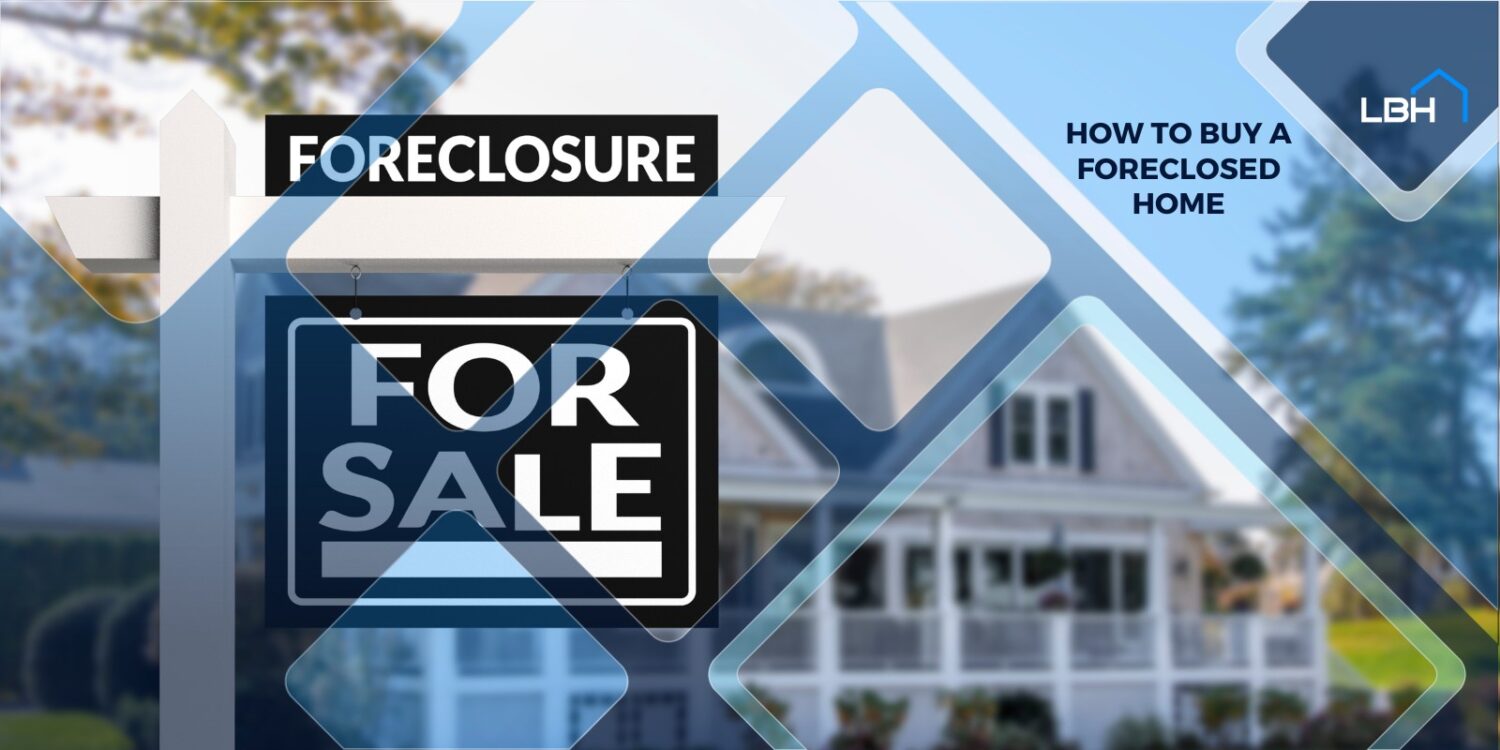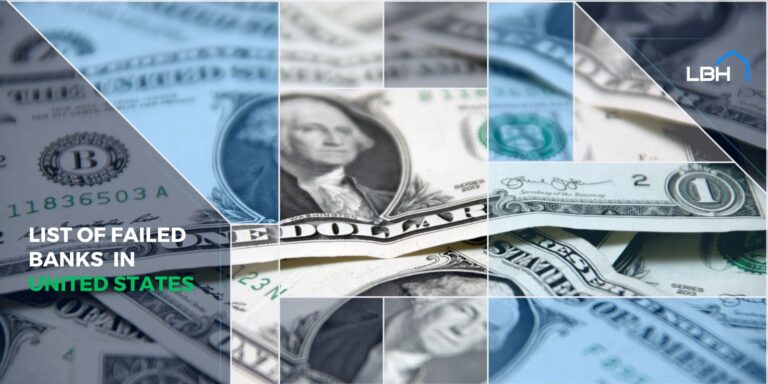Buying a foreclosed home is a wise investment. When a home undergoes foreclosure, it indicates that the lender seized it due to a defaulted mortgage. This means that the original homeowner or borrower was unable to fulfill the monthly mortgage payments.
The lender, usually a bank, places a lien on homes bought on a mortgage. The lien enables the lender to recoup them if the borrower fails to make regular payments.
The borrower misses several payments before the lender sends them a notice. The foreclosure process typically begins 120 days after the first missed payment. However, the lender and borrower first explore options such as:
- Refinancing alternatives
- Loan modifications
- Short-term repayment plans
The home undergoes foreclosure if none of the above alternatives work out and the borrower cannot pay the mortgage.
You will typically see foreclosed homes for sale in a dwindling economy. Buying foreclosed homes is cheaper, but you must factor in repair costs. There are also legal ramifications to the process that you must be aware of before you invest in such a home.
Investors who buy foreclosed homes flip them for rental income. If you’re keen on buying a foreclosed home, this article will help you understand:
- The foreclosure process in detail
- Legal implications of buying a foreclosed home
- How to find a foreclosed home
- Financing options for buying a foreclosed home
- Making an offer and closing a foreclosed home purchase
Finding Foreclosed Homes
Finding foreclosed home listings is not different from finding other types of homes. Many resources, including government websites and property portals, can help you find the right foreclosed home.
Here’s a handy list of resources you can check:
- Government-owned agencies such as the U.S. Department of Agriculture (USDA) and the Department of Housing and Urban Development (HUD) have websites that list foreclosed homes. You can browse the USDA’s Resale website, HomesSales.gov, and the HUD Homes for Sale website.
- Real-estate marketplaces such as Zillow and Realtor.com list foreclosed homes and bank-owned REOs on their websites. You can also check multiple listing services (MLS) such as Equator.com. It provides free foreclosure listings, short sales data, and properties listed for public auctions.
- You may have heard of mortgage financing associations like Fannie Mae and Freddie Mac. They have dedicated websites for foreclosed listings, such as HomePath.com and HomeSteps.com. They have a handy filter feature, so you can filter your desired listings by zip code or address.
- You can also browse the Bank of America Real Estate Center to access state-wide lists of foreclosed properties.
- Sometimes, borrowers default on property taxes, a reason why their home undergoes foreclosure. The Internal Revenue Service (IRS) website lists public auction details of such properties.
- Some paid subscription services like Foreclosure.com and RealtyTrac offer more detailed information about foreclosed listings. You can sign up for their free trial to access owner data, tax roll data, addresses, and loan amounts.
- The Auction.com website offers info on foreclosed home auctions.
For a broader search, type in the name of your “preferred county + foreclosed listings” to find local auctions. This gives you a location-specific advantage if you want a foreclosed home in a preferred neighborhood.
You can also prepare a list of home features you’re looking for in a home. Divide your list into must-have and nice-to-have features for a realistic scenario. For example, your must-have list might include features like:
- Preferred location
- Community vibe and access to parks, community facilities, and transport
- Preferred number of bathrooms and bedrooms
- Listing price that fits into your budget
- Extent of acceptable repairs (given it’s a foreclosed listing)
You can narrow down your search with these filters.
Looking for foreclosed listings can be confusing. Hiring a real estate agent can relieve some of this confusion. Don’t shy away from hiring an experienced agent if you’re a first-time buyer. Check their track record to see that they’ve previously worked with foreclosed listings.
Hiring a buyer’s agent also means you have a representative while dealing with the bank. They help you make the right offer price and negotiate tax fees and costs with the lender (bank).
Property Inspection While Buying Foreclosed Homes
Banks and HUDs sell foreclosed homes on an as-is basis. They are not responsible for any repairs to the property. Most foreclosed homes are poorly cared for, putting the onus of home inspection on you, the buyer. Property inspection is also important because, as a potential owner, you must be aware of every damaged /neglected aspect of the house.
So don’t make the mistake of buying a foreclosed home on impulse. First, get an assessment of the damage to the property. This will give you an idea of how extensive the repairs are.
Repair costs are a good point for negotiating the property’s sale price. You can also decide if the repair costs are worth the discounted price. If not, walk away.
Some bank-owned homes may provide an inspection report upon request. You can go for an independent assessment if you’re dissatisfied with it.
Financing a Foreclosed Home
Financing a foreclosed home isn’t that different from financing a regular home. The only difference is that the owner isn’t in the picture, so you deal with banks or the lender.
When buying a foreclosed home, you’ll likely have a rough budget. But sometimes, it’s not enough. Do a mortgage self-evaluation before you finalize a loan on your budget. It implies assessing the amount of mortgage you’re comfortable paying each month. Use a reliable mortgage calculator to help you with this.
Having a clear budget and a monthly mortgage target makes your home search easier.
Here are some other steps you can take to finance your foreclosed home purchase:
Get Preapproved
Never make an offer on a foreclosed home without first getting a mortgage preapproval. Showing interest in buying a home means nothing if you lack the means to finance it. That’s why getting preapproved is crucial.
When you’re preapproved for a loan, it shows the lender (usually the bank) that you’re an eligible borrower. It sustains faith in your ability to make timely mortgage payments. Thanks to preapproval, once you’ve purchased the property, the lender will back you financially without any issues.
A Guide to Financing Options
Government-approved loans, including those by the FHA and USDA, are readily available for financing a foreclosure home.
- Federal Housing Administration (FHA) loan: This is a great option if you have a low credit score or a debt history. You will qualify for this loan if you meet the above requirements. With the FHA loan, you can put a down payment of 3.5% of the total loan value.
Additionally, you pay private mortgage insurance for loan protection.
- FHA 203(k) loan: Buying a house in foreclosure means investing a significant amount for repairs. With the FHA 203(k) loan, a single loan, you can both buy and renovate a foreclosed home. The FHA 203(k) loan has two types:
- The Limited 203(k) loan is for projects valued at less than $35,000. It is not suitable for structural repair.
- The Standard 203(k) loan is for elaborate repairs costing more than $35,000.
- USDA loan: The USDA offers this loan if you’re buying a foreclosed home in a designated rural area. They feature 0% down payment plans and are targeted at low-income residents.
- Conventional loan: This is your traditional home loan process, replete with sizable down payments and high mortgages. If you don’t qualify for any of the above loans, this is the way to go.
- Veterans Affairs (VA) loan: This loan is available to qualified veterans at a 0% down payment rate.
Understanding the Foreclosure Process
You can purchase a foreclosed home from an auction, the bank, or the government. The seller will depend on where the property is in the foreclosure process. If you’re lucky, you may even bag a home in the early stages. This happens when a foreclosed property belongs to the defaulting owner, who is trying to offload it to salvage their credit history.
Types of Foreclosures You Need to Know About
- Auction
This is one of the early stages of home foreclosure. After the original homeowner defaults on payments, the property goes on auction.
You’ll find that this is one of the easiest ways to purchase a foreclosed home. There are no banks or government entities to deal with, just a straightforward purchase. The home price is also likely to be lower than the market value.
Do note, however, that this mode of purchase usually demands upfront cash. Some auctions allow mortgage financing, but ensure you have a preapproval letter ready. Another risk of purchasing a foreclosed home at auction is that you’re buying it as-is. Buying it without inspections or a thorough property assessment is risky.
Ensure you understand the legal and financial implications before you take this step. Consulting a real estate attorney during this process is a good idea.
- Bank-owned Property, aka REO Property
Sometimes, a foreclosed home fails to sell at the public auction. This is where the lender, typically a bank, steps in. It lists the property in its real estate-owned (REO) inventory.
Banks may or may not hire real estate agents to sell the property. They may also hire an REO specialist to market the property and ensure they gain exposure from potential buyers. REO properties sell for a discounted rate, although banks are usually slow to sell.
Most bank foreclosure houses will not sell to you directly. Employ a real estate agent to negotiate on your behalf. The great thing about purchasing bank-owned properties is that you get to view the home. You can also carry out inspections, unlike auctioned homes.
- Government-owned Property
These foreclosed homes are similar to bank-owned properties. In this case, they’re owned by the government due to one of two reasons:
- The original homeowner defaulted on a government-financed loan. For instance, they defaulted on a loan from the U.S. Housing and Urban Development Department or the Federal Housing Administration (FHA).
- The original homeowner couldn’t pay relevant property or income taxes, and the Internal Revenue Service (IRS) recouped the home.
- Preforeclosure
Preforeclosure is the stage before any of the above processes occur. In this stage, the lender has just notified the lender about their defaulted payments. The lender and the homeowner are likely working out the details during this stage.
The home doesn’t go on sale if the homeowner pays off the pending mortgages. The homeowner can sell off the property at a lower price before it goes on auction. Multiple listing services (MLS) tag these preforeclosure homes in their database.
- Short Sales
In a short sale, the owner sells their home for less than the amount owed on their mortgage. These sales first need to be approved by the lender.
Short sales are a hassle-free way for homeowners to sell their property. They have a better chance at protecting their credit score. They also don’t have to deal with the painful effects of foreclosure. As a buyer in a short sale, you can snap up the property at a low price.
Besides the above, foreclosures also depend on legal processes such as:
- Judicial Foreclosure
- Power of Sale
- Strict Foreclosure
Understanding the Foreclosure Timeline
Let’s understand why and how a home faces foreclosure.
- Defaulting on Payment
A borrower defaults on payment when they miss even one mortgage payment. But a formal notice isn’t sent to them until much later. First, the lender contacts them, requesting a reason for the default.
The lender sends a notice or a demand letter if the default payments continue for up to three months. This notice details the defaulted amount and allows the borrower 30 days to clear the dues.
- Default Notice
As per federal law, lenders cannot start foreclosure until the borrower has defaulted on payments for at least 120 days. Despite the notice, if the borrower fails to make the payments, foreclosure begins.
- Notice of Sale
States can have nonjudicial or judicial foreclosures. Nonjudicial foreclosures entail a simple process. All the lender needs to do is file the paperwork with the court and start the foreclosure process. In a judicial process, the court has a higher involvement. Each step in the foreclosure process needs to be vetted by the court.
After all the required approvals, the lender’s attorney registers a sale notice in the home county. It is also known as a notice of trustee’s sale. The notice details:
- Time for the sale
- Location of the sale
- Minimum opening bid for the foreclosed home
But this isn’t enough. The lender must also advertise the property to inform interested buyers about the public auction. This can be in the form of “for sale” home signs or through newspaper ads.
- Public Auction & Sale
The foreclosure house undergoes a public auction and is awarded to the highest bidder. A host of factors calculate the opening bid or price, such as:
- Unpaid property taxes, if any
- Outstanding loans or liens
- Market and other miscellaneous costs
After completing the sale, the winning bidder receives a trustee’s deed, which instantly transfers ownership to the buyer.
- Real Estate Owned (REO) Sale
In some cases, public auctions don’t yield successful sales. As such, the lender takes over the foreclosure process by becoming the owner. In most cases, the lenders are banks or government properties.
They add the property to a real-estate-owned (REO) inventory and sell it with the help of an asset manager. At this stage, the lender waives off liens and other taxes on the property to lure buyers.
- Eviction
The original homeowner has to vacate the premises once the sale of the home is complete. Eviction is a sensitive issue, so the borrowers have reasonable time to leave the house with their belongings. Upon refusal, the lender or buyer enlists the help of local law enforcers to seize the property and remove the residents.
Legal Implications of Buying a Foreclosed Home
As the new owner of a foreclosed home, here are some legal implications you could face:
- Title issues: Ensure that the lender clears the title and issues the deed of the foreclosed home in your name. This helps you establish lawful ownership.
- Property taxes: Check if you’re liable to pay any unpaid property taxes as the new owner.
- Homeowners Association (HOA) liens: Check if your foreclosed property has any pending HOA liens. You may be responsible for paying these fees as the new owner.
- Contractor Bills: There may be pending contractor bills If the previous owner was halfway through renovating the home when the foreclosure occurred. These may transfer to you as the new owner.
Foreclosed homes are sold in an “as-is” state. The bank won’t disclose any information about them, so you may not know what you’re getting into. Research the foreclosed home well before you sign the deal. A real estate attorney can guide you through the process and ensure that it is legitimate.
Making an Offer on a Foreclosed Home
When buying a regular home, the offer process is quite simple. The transaction is between the homeowner and the buyer.
In the case of foreclosed homes, you’re dealing with several parties, including:
- Banks
- Third-party auctioneers
- Other lenders
Having a real estate agent by your side during this process ensures your offer is admissible and is delivered to the right place – be it a public auction or an REO sale.
Determining the right offer price can also be tricky. There are five ways to ensure you arrive at the right number:
Researching the foreclosed property’s financial history: This entails comparing its original sale price to the opening bid (in case of auctions).
Comparing the values of foreclosed homes in the area: You can do this by checking internet listings of foreclosed homes in the area to compare their pricing.
Learning about the home’s condition: Doing this can help you determine the number of repairs and potential renovation costs. You can factor these figures into your offer.
Comparing listing prices to actual sale prices of similar properties: If you’re afraid of lowballing or overbidding, this helps you strike a balance.
Being aware of bidder competition: The higher the number of bidders, the higher your offer needs to be. Conducting market research using the above tips can help you stand out among bidders.
How to Make a Compelling Offer on a Foreclosed Home
Here are some more tips to help you stand out:
- Foreclosed homes have highly motivated sellers. Banks are eager to relieve themselves of the burden of a foreclosed home. You can take advantage of this situation and offer a quick closing to help you stand out amid the competition.
- Skip the inspection if you’re confident that you’ll profit from the foreclosed property. You must be sure that any profits from flipping the home will far outweigh the money you invest in repairs. Skipping this process gives you an edge over other sellers, as banks see this as less effort on their end.
- Cash payments are highly valued, especially for REO homes. You can show the bank a credit statement that proves you have the funds to buy the home with cash upfront. Cash trumps even preapproval letters.
- Have a friendly attitude and build a camaraderie with bank lenders if possible. You’d be surprised how far a friendly demeanor can go.
- You can also offer to split escrow, title insurance, and transfer fees with the bank or lender for a favorable impression.
Closing on a Foreclosed Home
With the paperwork in place, closing a foreclosed home is fairly straightforward. Having your real estate agent and an attorney during closing is a good idea to ensure the transaction goes smoothly.
Once you’ve submitted the offer, you’ll be tackling multiple tasks. These include:
- Filling out the necessary paperwork
- Finalizing the loan in alignment with your offer
- Negotiations with the bank, in the event of a counteroffer
- Home appraisal
Closing is also a good time to verify any title concerns. Without this step, you’ll be unable to establish legal ownership. In most cases, the bank clears the title, but there’s no guarantee.
Contact the lender to confirm that the title is in your name. You can use the lender’s title company to do this or hire your own before the deal closes.
Bank Response Time
In the case of foreclosed homes, banks are keen to close the deal quickly. Yet, they may take a long time to respond to your offer. You can expect some delay while the bank reviews the offer with third-party appraisers and companies. They do expect you to close quickly once they approve the offer.
In some cases, banks present a counteroffer. As the seller, they are required to demonstrate their efforts to get the best deal possible for the foreclosed property.
They may also present you with a purchase addendum outlining additional contract terms and contingencies. Get these contracts reviewed by a real estate attorney before signing.
Closing Steps
Three main steps cinch the deal on your foreclosed home:
- Filing relevant documentation
- Making your down payment
- Release of loan funds by the lender
The lender sets a closing date to complete the above actions. You must pay a penalty for each day you are late if you miss the deadline.
To ensure a stress-free closing within the due date, do this:
- Get preapproval on your mortgage.
- Speak with your lender/bank about releasing the funds before the due date
- Hire a real estate agent or an attorney to file all paperwork.
Once everything is in order, the lender signs and stamps the documents, making you the rightful owner of the foreclosed property.
A Note on Title Insurance
Title issues are one of the pitfalls of acquiring a foreclosed property. Even if you purchased a bank-owned foreclosed home with clear titles, it may have a complicated title history dating back to past owners. These may include:
- Boundary disputes
- Public record errors
- Liens
- Any pending property taxes from past ownerships
- Easements
If the title is unclear, you could be responsible for debts related to the property. That’s why title insurance is paramount.
Conduct a title search to clear the title so you can get a title insurance policy easily. Many companies conduct title searches to uncover lingering issues about the property.
Once the title is clear, your title insurance policy covers subsequent title correction costs. You will also be at ease knowing that the title is clear and you’re the undisputed owner of your newly acquired property.
Tips for Success
The purchase of foreclosed properties has an emotional aspect that few people discuss. There are mental pressures during this process, including:
- Guilt about acquiring a foreclosed property
- Stress of repair and renovation as the new owner
- Tackling legal issues
- Negotiating with lenders and banks
- Dealing with hidden costs such as liens and unpaid taxes
- Competition from bidders, delays, and lost bids
But remember, the bottom line is that you’re getting a home at a reduced cost. If the house doesn’t need major structural repairs, going through the ordeal to get your home and rebuilding it with your vision is worth the time and effort. With some patience and perseverance, these issues will pale in hindsight.
Having a professional team to guide and support you during this complicated process can be a lifesaver. The advice of experienced attorneys, real estate agents, and inspectors can help you with the purchase process.
Once you become the owner, come up with a plan for renovations. The idea is to make focused changes that drive a good return on investment in the future. You can set a renovation budget. Prioritizing repairs and upgrades will help you make the most of that budget.
Renovations can take time and effort. Stay calm and prepare yourself for unexpected delays and last-minute changes.
Buying a Foreclosed Home: Is it Worth it?
All said and done, buying a foreclosed home is worth it, and here’s why:
- Its low cost puts you in a win-win situation that’s unlikely with regular properties.
- You have access to financing options like government loans and preapproved mortgages.
- You’re in a good position to negotiate with banks and lenders eager to offload the foreclosed homes in their inventory. You can also engage an agent without worrying about the commission, as the bank pays it.
- You can ask for reductions on related fees like escrow and closing costs.
Overall, buying a foreclosed home presents a good ROI. But ensure you take precautions and research every part of the process. Keep in mind that you’ll have to bear the costs of renovation. Don’t skip inspecting the property unless you’re familiar with its condition.
Tackle legal aspects by talking about niggling issues with your lawyer. You must also work with a local real estate agent who has dealt with foreclosed homes before.Knowledge and patience will help you close a successful purchase. Staying informed and having a little faith goes a long way in purchasing a foreclosed home.












